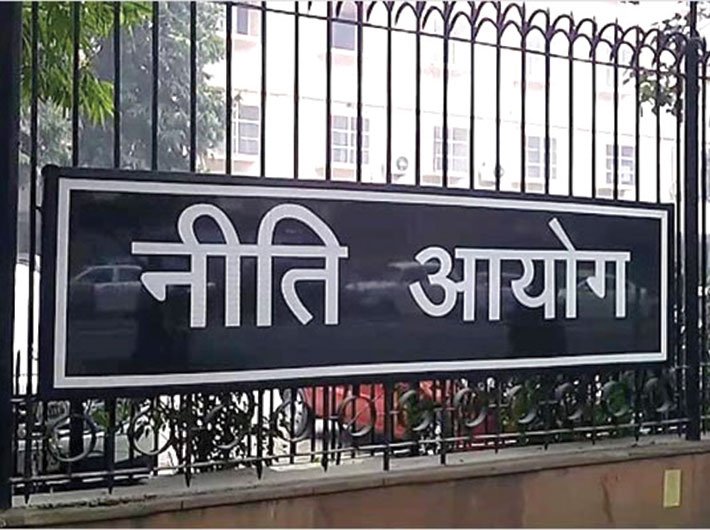On December 7, 2014, the PM, along with his team, hosted CMs for exchange of views on economic planning. The consultation agenda was “cooperative federalism” (interface between the centre and states); strategic and perspective planning; innovation and knowledge hub; and flow of funds. In other words, the agenda was the planning commission, and its future.
Seen as a Nehruvian legacy, the plan panel was never a favourite with Modi. Even as Gujarat CM, he had often objected to the unequal centre-state partnership in economic development. He had objected to the seating arrangement at the National Development Council (NDC) meetings where CMs were made to sit in the audience while the PM, cabinet ministers and bureaucrats occupied the dais. On December 7, he changed that – PM and CMs sat at the same level. A little later, on January 1, the National Institution for Transforming India (NITI) Aayog was born on the grave of the planning commission. “Through NITI Aayog, we bid farewell to a ‘one size fits all’ approach towards development,” tweeted Modi on January 1.
The task of the new ‘think tank’ remains the same: providing strategic and technical advice to governments. It has the PM as its head and one vice-chairperson along with full-time and part-time members. Its governing council includes CMs and lieutenant governors of states and UTs.
Four months may be too early to tell, but the new body is surely having teething troubles. Its structural and functional responsibilities remain ambiguous. In the 2015-16 union budget, '20,000 crore was earmarked for states under special assitance fund, based on recommendations made by NITI Aayog, to which the parliamentary standing committee on finance said if NITI Aayog was to decide disbursal of funds to states, then what was the need of dismantling the erstwhile planning commission.
Under Modi, states may look for more power and money, but if “NITI Aayog will develop mechanisms to formulate credible plans to the village level”, as stated in a press release, the promise of “cooperative federalism” seems doubtful. Also, does it not amount to the ‘one size fits all’ approach?
There is also the confusion over the status accorded to the vice-chairman of the Aayog. Former plan panel deputy chairman Montek Singh Ahluwalia enjoyed a cabinet minister rank and was therefore a permanent invitee to all important policy deliberations. The first vice-chairperson of NITI Aayog, Arvind Panagariya, however, has been accorded the status of cabinet secretary (for pay and allowances), which may allow him to attend important meetings but disallow full participation in discussions. Panagariya though has been equated with cabinet ministers in the “warrant of precedence”, which has led to the confusion.
In the very first meeting of NITI Aayog’s governing council on February 8, non-BJP ruled states sought clarifications on the functions and powers of this body, and expressed concerns on allocation of funds and arbitrary cuts in centrally sponsored schemes (CSS). The intervention was quick to come. In the past two months, a panel of CMs from 11 states met to discuss rationalisation of CSS. The panel would meet again on May 28 in Bhopal to finalise its recommendations and present a report to the PM. This panel is one of the three sub-groups of CMs, formed to work on areas calling for swift action. The other two sub-groups of CMs are working on skill development and Swachh Bharat mission. Critics say such panels were set up to thrash out issues between states in the time of the plan panel too.
So, what is the defining ‘niti’ (policy) of NITI Aayog?
States joining the policy formulation exercise with the centre, rather than being told to implement one made by the centre, can be the starting point towards cooperative federalism.
[email protected]
(The article appears in the May 16-31, 2015 issue)



